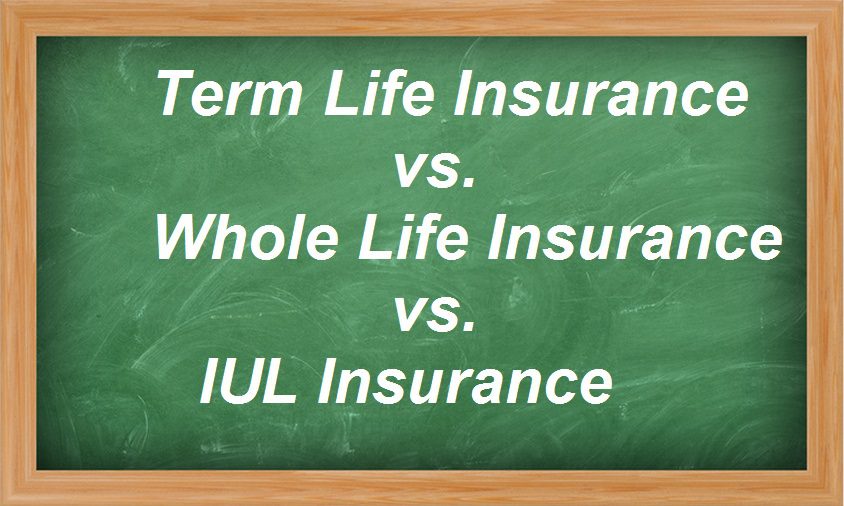
Life insurance isn’t a one-size-fits-all solution. You have many options to cover your needs, including the ability to purchase additional benefits on a basic life policy. These additional policy benefits are called life insurance riders.
Some riders are automatically included in a policy at no extra cost. Other riders will require additional premium cost. Life insurance rider benefits are available for many needs, from terminal illness and long-term care costs to term insurance coverage of children or of a spouse. With that said, you must meet the conditions outlined in the rider to enjoy its particular benefit.
In some policies, you may blend different riders together, at additional cost. The riders you choose, whether included in the policy or purchased at additional cost, may be used for current or future insurance needs.
Since many life insurance riders mean additional premium to be paid, it’s prudent to be sure you don’t get too much insurance. Knowing the basics of different riders and what they offer is a good starting point. Let’s go more into that now. Read More

When shopping around for a life insurance policy, you have many choices. From monthly low-cost term insurance to more expensive but long-term coverage benefits of whole life and universal life insurance, you face a wide landscape of options: term life vs whole life vs universal life insurance.
To help you get started, here’s a quick guide on the differences between term life vs whole life vs universal life insurance.
What to Consider When Buying Life Insurance
When it comes to life insurance, you often focus on two things: length of coverage and price. You may have heard of trendy sayings like “term over perm” or “buy term and invest the difference.” But the question of what life insurance you need isn’t an “either-or” situation. Nor is term insurance the “best” option by default.
Sure, you may purchase term coverage at the lowest initial cost. But when you need to renew your policy, term rates often increase substantially. You may also find that you need more than one type of life insurance policy.
Consider several variables when selecting from term life vs whole life vs universal life insurance, including your risk tolerance, age, potential changes in the number of your dependents, health status, time horizon before retirement, and whether your needs extend beyond just protection.
Term Life vs Whole Life vs Universal Life Insurance
When considering life insurance, you have several options, each with its unique features and benefits. Understanding the differences between term life vs whole life vs universal life insurance can help you make an informed decision that best suits your financial needs and goals.
Term Life Insurance
Compared to whole life and indexed universal life, term life insurance provides the simplest coverage. As the policy owner, you hold the guarantee of a death benefit for a certain period. That can last anywhere from 10-30 years, with most term policies lasting for 20 years.
When a term policy expires, that’s it. Your loved ones won’t receive any payouts since the policy has ended. You may be able to renew your term policy, but your new rates will be based on your current age and the actuarial risks that come with it (for example, heightened health risks, shorter life expectancy, etc.).
Benefits of Term Life Insurance
The benefits of term life insurance include fixed premiums and the simplest form of life insurance coverage you can purchase. It is available at a lower initial cost than whole life and indexed universal life (IUL) insurance, providing a straightforward, guaranteed death benefit for a preset duration.
Term life insurance may also offer the ability to convert to a permanent policy, and some policies include riders for healthcare and long-term care costs. It provides flexible, short-term protection when you need it.
Disadvantages of Term Life Insurance
Some downsides of term life insurance include the risk of the policy lapsing if premium payments are late or missed and the absence of a death benefit upon expiration. Renewal rates can be significantly higher than your initial rates, and the policy does not include any cash value.
Moreover, for some people, the lack of a “return benefit” after potentially decades of premium payments can be difficult to accept.
Term insurance is a short-term, economical way to insure a large amount of money or the income stream that a wage earner brings home. If you are looking for lifelong coverage or need efficient legacy planning vehicles, you may be better served by permanent insurance options.
Whole Life Insurance
Whole life insurance comes with a cash value, which you can access in later years. When comparing whole life – and other cash value insurance for that matter – to term life, it’s similar to buying versus renting a home.
Renting will be less expensive in the short run. But over the long term, it may prove to be the most costly. In contrast, buying a home enables you to build up home equity over time – not to mention it may be potentially lower cost over time.
It is like owning a home that has a corresponding equity component. Over time, this equity component, or the cash value grows tax-deferred, and your premiums don’t increase. That said, whole life insurance does come with more costs to cover, including management fees.
Benefits of Whole Life Insurance
The benefits of whole life insurance include fixed premiums that don’t rise with age and guaranteed benefits. It is the simplest form of cash-value life insurance, allowing you to pay up the policy’s face value in 10-20 years or by age 65.
You can access the cash value via loans or withdrawals later on, with no age 59.5 withdrawal rules, as long as the policy doesn’t become a Modified Endowment Contract. The cash value grows on a tax-deferred basis, and money can be taken out potentially tax-free. The insurance company may also pay dividends to the policy owner.
Whole life insurance may be a good option if you want lifelong coverage and more straightforward costs of insurance than other cash-value insurance products. It can also be a better fit if you are a retirement saver looking for alternatives to the meager interest rates of CDs or bank saving accounts.
Cons of Whole Life Insurance
Some downsides of whole life insurance include often having an interest rate that is not guaranteed and higher costs compared to term insurance. Premium payments are not flexible and must be paid consistently to prevent the policy from lapsing, which could trigger a taxable event.
Whole-life policies are also likely to earn lower interest and typically do not build cash value early on.
Indexed Universal Life Insurance
Index universal life insurance, or “IUL,” can enjoy stronger opportunities for cash value growth than whole life insurance. Its interest-earning potential is tied to an index, like the S&P 500 price index.
Unlike whole life insurance, IUL offers flexibility in premium payments, with certain conditions. The cash inside an IUL policy grows tax-deferred, just like with whole life, and you can tap into the cash value for premium payments.
While the growth potential may be more substantial, indexed universal life insurance is a newer innovation in the insurance marketplace. Your premiums may increase over time, as the cost of insurance may rise. Insurance carriers may hold derivatives as underlying investments in IUL policies, which can make these policies even more complex.
IUL lets you enjoy growth potential tied to an index, but it comes with limits. IUL insurance carriers “cap” the growth potential at certain predetermined rates, and likewise, they may protect against negative index changes with a “floor.”
Many IUL policies have a floor of 0%, meaning your cash value doesn’t drop in value when the index goes down. This applies when the insurance carrier credits interest to your policy. Your policy may lose value due to policy costs you have to pay should you earn no or low interest at a given point.
If you relied on high interest-earning years to fund the cash value, it could lead to a policy lapse in later years, should the policy get low interest in later times. Likewise, taking policy loans and paying loan interest can be risky if earned interest doesn’t surpass the costs of the loan.
Advantages of Universal Life Insurance
Some benefits of indexed universal life insurance include guaranteed benefits, although fewer than whole life insurance, and the potential to obtain a larger death benefit. The policy allows for flexible premium payments and the possibility of earning more interest than whole life insurance.
You can access the cash value through loans or withdrawals without age 59.5 withdrawal rules. It also offers tax-deferred growth potential for retirement money and serves as an ideal vehicle for supplementing income or maximizing an estate for beneficiaries.
If you are looking for safer alternatives to stock market volatility, you may want to consider indexed universal life. Likewise, if you are looking to maximize legacy assets for heirs or provide a tax-efficient estate transfer to your loved ones, you may look into this insurance type.
IUL can also offer another vehicle for supplemental retirement income when you have maximized contributions to IRAs, 401(k)s, and other savings plans.
Downsides of Universal Life Insurance
The drawbacks of indexed universal life insurance include the possibility of premiums increasing over time and the opportunity to earn interest being dependent on index performance. The interest-earning potential is often “capped” by insurers, and the policy may lose value if the costs outpace the low interest earned.
Choose the Best Life Insurance Policy For You
When considering term life vs whole life vs universal life insurance, it’s by no means exhaustive. If you are considering life insurance as part of your financial strategy, especially permanent insurance, be prudent.
Conduct careful due diligence and consider guidance from a financial professional who acts in your best interest. When planned and implemented properly, a life insurance policy can go a long way toward bringing you more financial security and peace of mind.
Ready for personal attention as you consider different insurance options? A financial professional at SafeMoney.com can assist you. Use our “Find a Financial Professional” section to connect with someone directly. If you need a personal referral, call us at 877 476 9723.


















